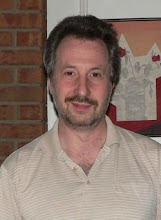Reporter's scoop reveals that Samuelsson is not a Swede in Nagano-98
Nagano, Japan. February 15-17, 1998
Picture it: The 1998 Olympics in Nagano with full NHL-players participation for the first time and a huge media following. After one of Team Sweden’s practices a big media scrum is waiting in the mix zone for the players to appear from their dressing room for interviews. As rugged Swedish defenseman Ulf Samuelsson passes by the reporters, Sport Illustrated hockey writer Michael Farber cracks a joke to Janne Bengtsson, a Swedish reporter standing next to him: “Why would we give a dirty player like that U.S. citizenship?”

Ulf Samuelsson (right) in his last ever game with Tre Kronor in Nagano, Japan, against Belarus. PHOTO: Europhoto/Jukka Rautio
The innocent comment initiated one of the biggest journalistic scoops in hockey history, triggered chaotic development over the following 24 hours that ended in the highest sports court and finally resulted in Samuelsson having to leave his team and the Olympic village.
Farber knew that Ulf Samuelsson, who played for the New York Rangers and at that time had already lived 13 years in the States, had applied for U.S. citizenship. For Farber that was nothing strange. The sports world is full of athletes who carry dual citizenship. But his innocent comment ignited Janne Bengtsson’s journalistic instincts. The reporter for Svenska Dagbladet was distantly aware about a Swedish law that said that Swedish citizenship is annulled when a person acquires a foreign passport. So while the passport that Samuelsson submitted to the tournament directorate prior to opening game was indeed Swedish, it was no longer valid.
Realising that he could be onto something big, Bengtsson immediately started researching. He was sure to confirm the Swedish law that - at that time - didn’t allow dual citizenship and also the IIHF eligibility regulation that stated that in order to represent a country one must indeed be a citizen of his team’s country. It took some time, but on February 16, the same day as Sweden played against Belarus, Bengtsson had all the facts.
During the first intermission, Bengtsson approached Rickard Fagerlund, the president of the Swedish Ice Hockey Association and also member of the IIHF Council. “Do you know that Samuelsson is a U.S. citizen and, as such, not eligible to represent Sweden?”
When Fagerlund overcame his initial shock, he called to team manager Bo Tovland, who was on the team bench, and told him to ask Samuelsson if it was correct that he was a U.S. citizen. Midway through the game, with Sweden up 3-1, Samuelsson confirmed that he held an American passport.
Sweden won the game 5-2, but no one on the Swedish team really cared. Samuelsson was told by Tovland and Fagerlund that his U.S. citizenship nullified his Swedish passport. The player was stunned. He cannot believe that he, born and bred in central Sweden, is considered a Swede no more.
Now the circus began and it lasted through the next 24 hours, finishing at five the next morning as the sun was rising in Nagano. There was no question that Samuelsson must be disqualified and that he must leave the team and the Olympics. Just like in a doping case, the IIHF tournament directorate ruled that the player was out, but the team suffered no consequences and kept its standings points.
But things were not so easy. The Czech Republic disagreed with the decision and wanted the directorate to deprive Sweden of all their points. The reason was simple: If the Swedes lost all their points from the games with Samuelsson’s participation, the Czechs would face Belarus in the quarterfinal and not the U.S. – a huge difference.
The Czechs filed a protest against the directorate’s decision and the case went to CAS, the Court of Arbitration in Sport that is always at the Olympic venue. But time was running out. It was February 17 and the quarterfinals were scheduled for the 18th. CAS dealt with the affair quickly and supported the position of the tournament directorate. Samuelsson was out of the Olympics, Sweden retained its points and played Finland in the quarters. The Czechs had to face the Americans.
Meanwhile, the Swedish Olympic Committee held a press-conference with the entire hockey team. Samuelsson, one of the toughest and meanest players in the NHL, broke down in tears. He assured the media that he was not aware of the rule that said he couldn’t be a dual citizen. The players said goodbye to Samuelsson as they had to prepare for the quarterfinal. The team never re-covered and Sweden lost to archrival Finland, 2-1. The Czechs? They easily defeated USA 4-1 and went on to win the country’s first Olympic hockey gold.
Samuelsson never saw the Swede’s game against the Finns. The city he arrived in one week earlier as a celebrated Swede, he left as a disgraced American. After having played close to 100 games for different Swedish national team, he would never again suit up in the Tre Kronor-jersey.
It wasn’t easy for reporter Janne Bengtsson either. Back in Sweden, his family needed police protection as they received more than 400 threatening phone calls, many of them with death threats. Many fans accused him of high treason. What they never understood was that he was doing his job. He was a reporter, not a supporter. And his scoop led to one of biggest stories in the history of international hockey.



















No comments:
Post a Comment